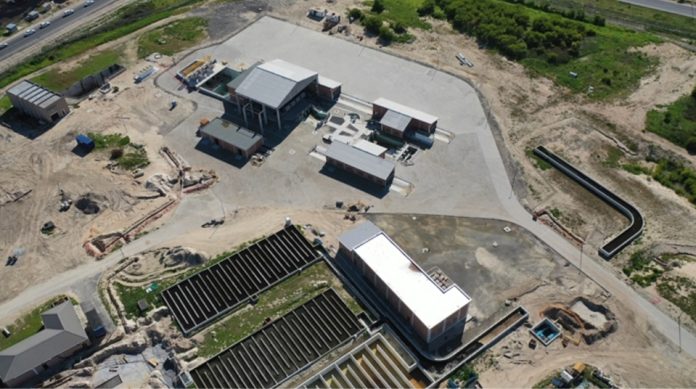Cape Town Mayor Geordin Hill-Lewis has launched the City’s latest annual infrastructure report, which details investment in infrastructure over the next decade.
A whopping R120 billion has been earmarked to be spent on water, sewage, energy and housing projects, to ensure the City can accommodate its growing population.
Over the next three years alone, the City is investing R43 billion, more than Durban and Johannesburg combined.
Hill-Lewis says 73% of this year’s record R11 billion infrastructure budget will directly benefit lower income households and people living in informal settlements.
Hill-Lewis says these investments are necessary as Cape Town is set to pass Joburg as South Africa’s most populous city.
Census numbers show Cape Town will soon swell to 5 million residents.
‘Our metro is also increasingly at the heart of national economic growth, adding over 200 000 jobs in the last year, which is more than SA’s other metros combined. The City’s infrastructure investments will further create an estimated 135 000 jobs over three years, based only on the initial investment, excluding downstream economic benefits. This is aside from the greater personal and community dignity that comes with improved infrastructure.’
Water and Sanitation makes up 42% of the R120 billion 10-year pipeline, with multi-billion rand upgrades to seven wastewater works that are on track, according to the Mayor.
New projects to improve public transport – worth R21 billion – are also planned along three major corridors in the outer years of the next decade: Khayelitsha–Century City, Symphony Way, and Klipfontein.
Other highlights from Cape Town’s Infrastructure Report include:
- The City’s New Water Programme aims to add 300 million litres of water per day from new sources by 2030. By 2040, around 25% of the Cape Town’s water is expected to be sourced from desalination, groundwater, and re-use.
- R55,5 billion, or 40%, of Cape Town’s overall 10-year pipeline, aims to up the city’s climate change resilience against drought, fires, heat, flooding and storm surges.
- The City will add 650MW in independent power to the Cape Town grid by 2026/27 to protect against four stages of Eskom’s load-shedding, with the aim of adding 1GW in time.
- R5,8 billion will be invested in congestion relief roads projects over the 10-year portfolio.
- The City has further made a key policy change to reduce the service radius of waste drop-off sites from 7 km to 3 km, with ten new waste drop-off facilities planned in the next ten years up to 2035. A total of 98% of Urban Waste Management investment will go to landfill related projects over the next decade.
- Land released for well-located affordable housing over the last year will result in an estimated 1 500 social housing units, within a total yield of 3 300 units.
Our second annual Infrastructure Report is now out, where we set out in detail our R120 billion infrastructure pipeline! We also take an in-depth look at infrastructure investment in Maitland.
Over the next ten years, we're investing in roads, water, energy, and more –… pic.twitter.com/eOpwhW2ZOH
— Geordin Hill-Lewis (@geordinhl) February 14, 2024


